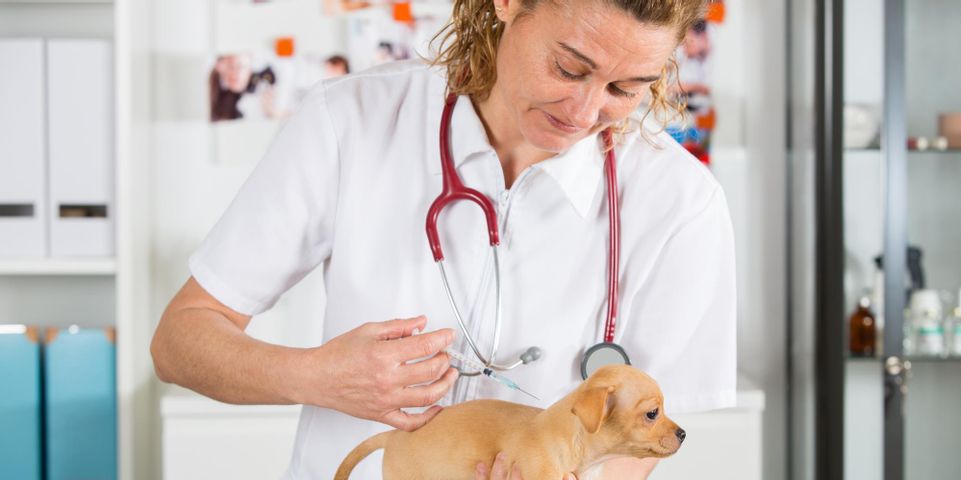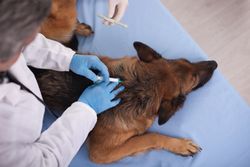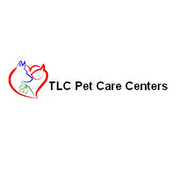
Like their human companions, dogs need vaccines to protect them from a variety of life-threatening diseases. They receive small doses of inactive viruses so their immune systems create antibodies that kill real viruses if they are ever exposed. Dogs start vaccine schedules at vet clinics about six weeks into puppyhood and require boosters throughout their lives to stay healthy. Learn about some of the most essential dog vaccinations here to provide your pooch with the best care.
3 Dog Vaccines & Why They Are Necessary
1. Distemper Combo
As a vaccine administered every three years after initial immunizations during puppyhood, this combination protects against distemper as well as the parvovirus and adenovirus type 2. Distemper is a virus that attacks canine skin as well as the nervous, respiratory, and gastrointestinal systems. It can cause breathing difficulties, seizures, and paralysis, among other symptoms.
 Parvovirus symptoms include diarrhea and vomiting in addition to harming bone marrow. Without treatment, it can cause heart failure. The Adenovirus type 2 disease causes kennel cough and liver failure without vaccination.
Parvovirus symptoms include diarrhea and vomiting in addition to harming bone marrow. Without treatment, it can cause heart failure. The Adenovirus type 2 disease causes kennel cough and liver failure without vaccination.
2. Rabies
The rabies vaccine is not only necessary because of its fatal attack on the canine nervous system, but because it is the law. Rabies spreads through infected bites and can transmit to humans. Symptoms include foaming at the mouth, aggressive behavior, fever, and licking and biting the infection site. Advanced rabies symptoms include throat and jaw muscle paralysis. Like distemper combo vaccines, the rabies vaccination requires staggered administration during puppyhood and booster shots every three years.
3. Influenza
Two types of influenza affect dogs—H3N8 and H3N2. It is especially prevalent among “social” canines, or those that routinely go to dog parks or otherwise interact with their peers. Since it is a noncore vaccine, your vet clinic may not recommend it if your four-legged friend mainly lives indoors and dog flu outbreaks in your region are low. Symptoms include fever, low energy level, cough, and loss of appetite. Veterinarians administer two vaccines spaced two to four weeks apart in dogs over six weeks old. They then receive booster shots the following year.
Discuss the best vaccination schedule for your dog with one of the veterinarians at TLC Pet Care Centers. The vet clinic has two convenient locations in Cincinnati, OH, and offers a variety of pet wellness services, including boarding and dental care, in addition to vaccinations. Call (513) 825-4011 for the west location or (513) 683-2300 for the east location today to make an appointment, or visit the vet clinic online to meet the team. Get more pet care tips on Facebook.
About the Business
(28 reviews)
Have a question? Ask the experts!
Send your question

